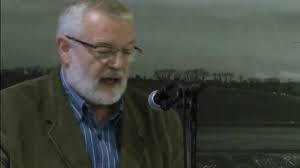DON'T TRAP MY SPIRIT IN A TWISTED FRAME
The original poem, on which the song is based, was written by Mervyn Ennis for a friend of his whose wife had died after a difficult illness.It is a protest against prolonging life unnecessarily when a person is terminally ill and could look forward to a better life in their next existence.
If you wish to download this song, click on the link below and then click on the three dots on the right of the link page.
|
Don’t trap my spirit in a twisted frame
Don’t trap my spirit in a twisted frame Just free my wings let me toss my mane Wild as the fox waves his bushy tale Like a speckled thrush, Let me sing my song again And when you sing a song of hope, I will join in the refrain I will hold you in my heart, until we meet again. Now let me shed a tear from a well so deep To banish many fears for I have dreams to keep. Unknot the ties of my earthly woes Set my spirit free for it‘s time to go For butterfly wings to stretch in the air And drift and soar on a waft of prayer. There is no place for me in a sanitised cell With starched white sheets and a fragrant smell Bell book and candle are fine for some But let me lie where the wild hare run With memories bounding down to the sea To my rendezvous with eternity. And when you sing a song of love, I will join in the refrain I will hold you in my heart, until we meet again. Open the Lock gates and let me glide Back home to the eternal tide Buoyed on by memories down to the sea To my rendezvous with eternity. When you sing a song of hope, I will join in the refrain I will hold you in my heart until we meet again. And when you sing a song of love, I will join in the refrain I will hold you in my heart until we meet again. Recorded at Contact Studios, Tallaght. Recording Engineer and Instrumentalist Gerry Horan. Backing Vocalist Danai Kelleher
|
Mervyn Ennis - LyricistMervyn Ennis is a native of Dublin and now lives in Saggart. He has had his poetry recognised in Irish and British awards and in Irish, British, Italian and Australian publications. The form ranges from traditional to performance poems, from reflections of a frugal, rural childhood, to working alongside the Travellers as a community worker to experiences as head social worker in the Irish Military peacekeeping arena where he experienced at first hand the futility of war
|

